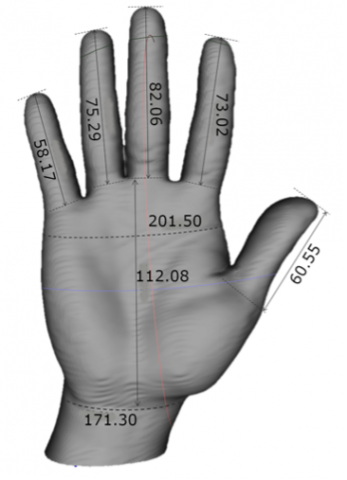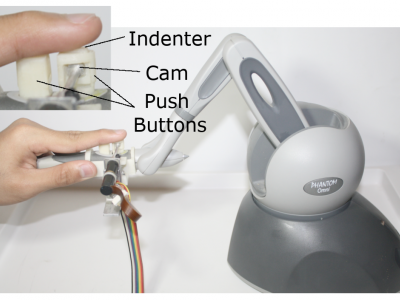Datasets
Open Access
Indirect Hand Anthropometric Measurements using 3D Scanning Devices
- Citation Author(s):
- Submitted by:
- John-John Cabibihan
- Last updated:
- Thu, 02/18/2021 - 03:37
- DOI:
- 10.21227/7gca-j353
- Data Format:
- License:
 839 Views
839 Views- Categories:
- Keywords:
Abstract
Indirect hand measurement processes have been used to improve remote accessibility and non-contact acquisition methods. This is particularly helpful when developing custom products, such as prostheses or gloves, to a user. Indirect hand measurements, however, may be difficult to acquire due to the requirement that certain specifications to be met. In the case of indirect measurement determination from 3D scans, obstructions may affect the observed outcome. This is especially true when using low-cost 3D scanners that have not been optimized for medical use. Experiments used to extract this dataset explored the possibility of acquiring joint center measurements from 3D scans in order to offset surface changes that occurred when the hand is captured in a natural pose. This dataset illustrates measurement data from a human hand using four different commercial scanners. Furthermore, the dataset provides measurements obtained using a CT scanner for reference.
The data is provided in .xlsx Excel format. It contains one sheet that includes all the hand measurements corresponding with the devices used. Key measurements for each device are summarized in four .txt files, each belonging to a separate scanner. The .R file is included and contains the R code used for statistical analysis of the observed measurements.
Documentation
| Attachment | Size |
|---|---|
| 3.42 KB |








